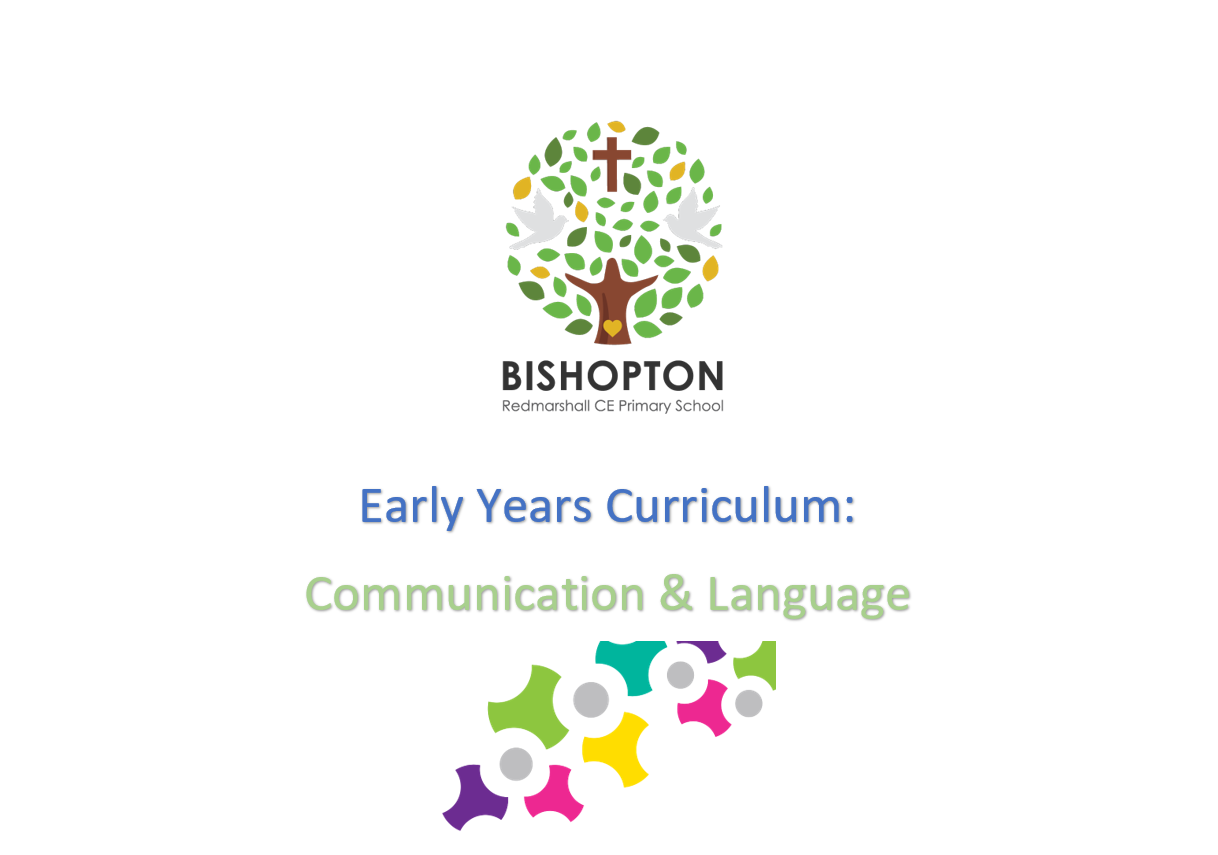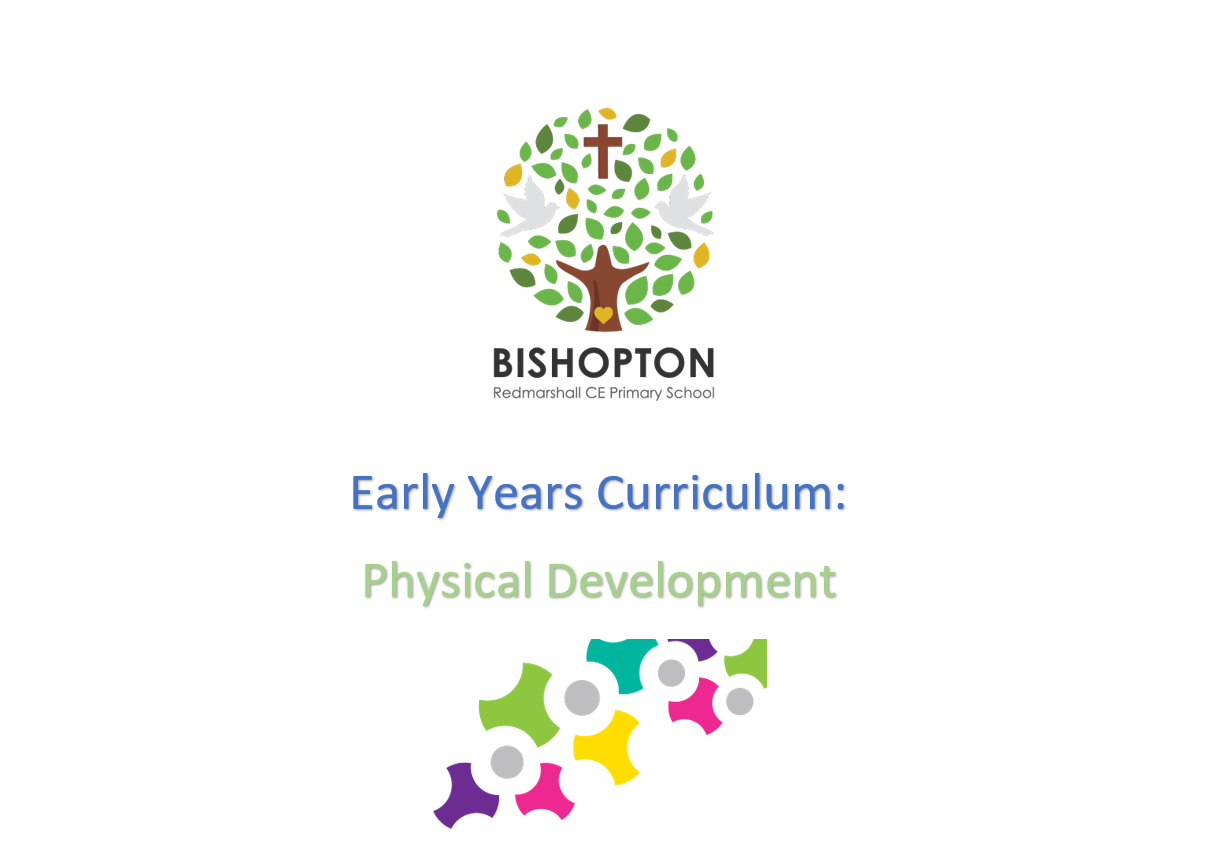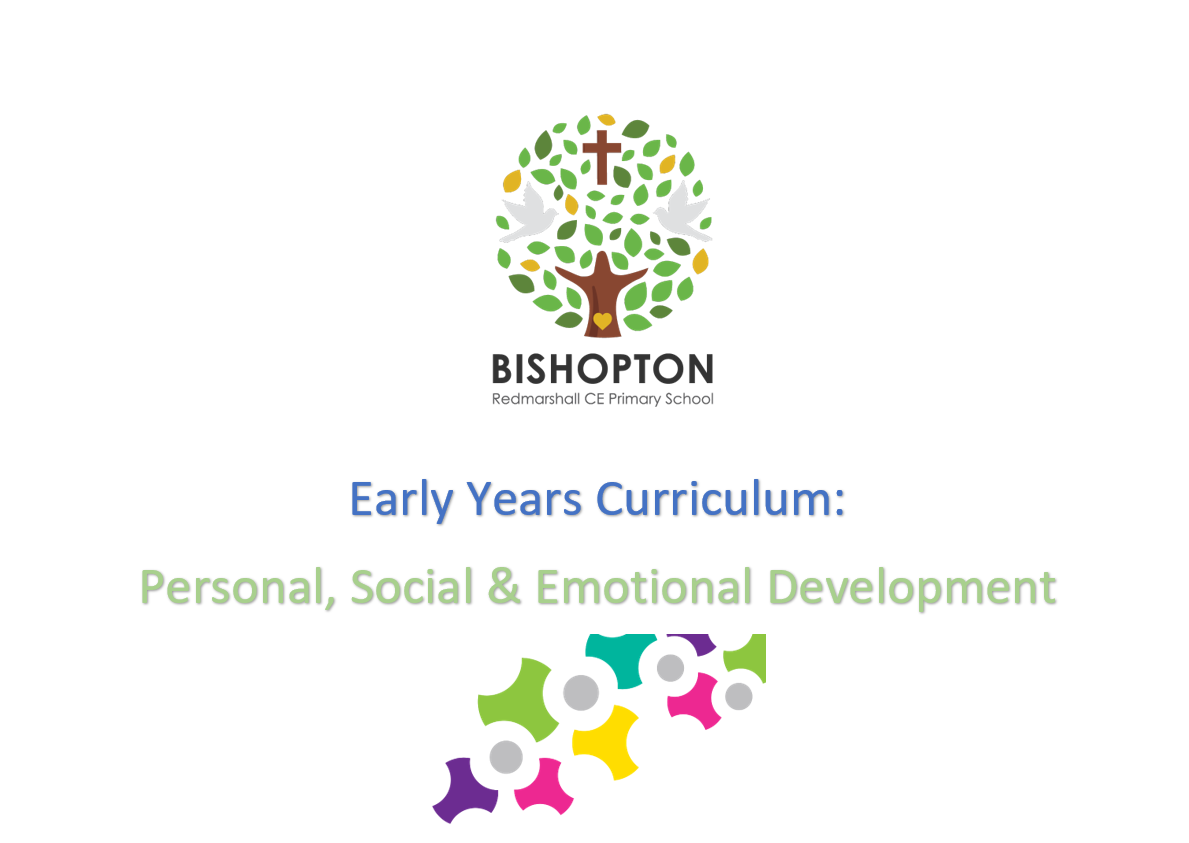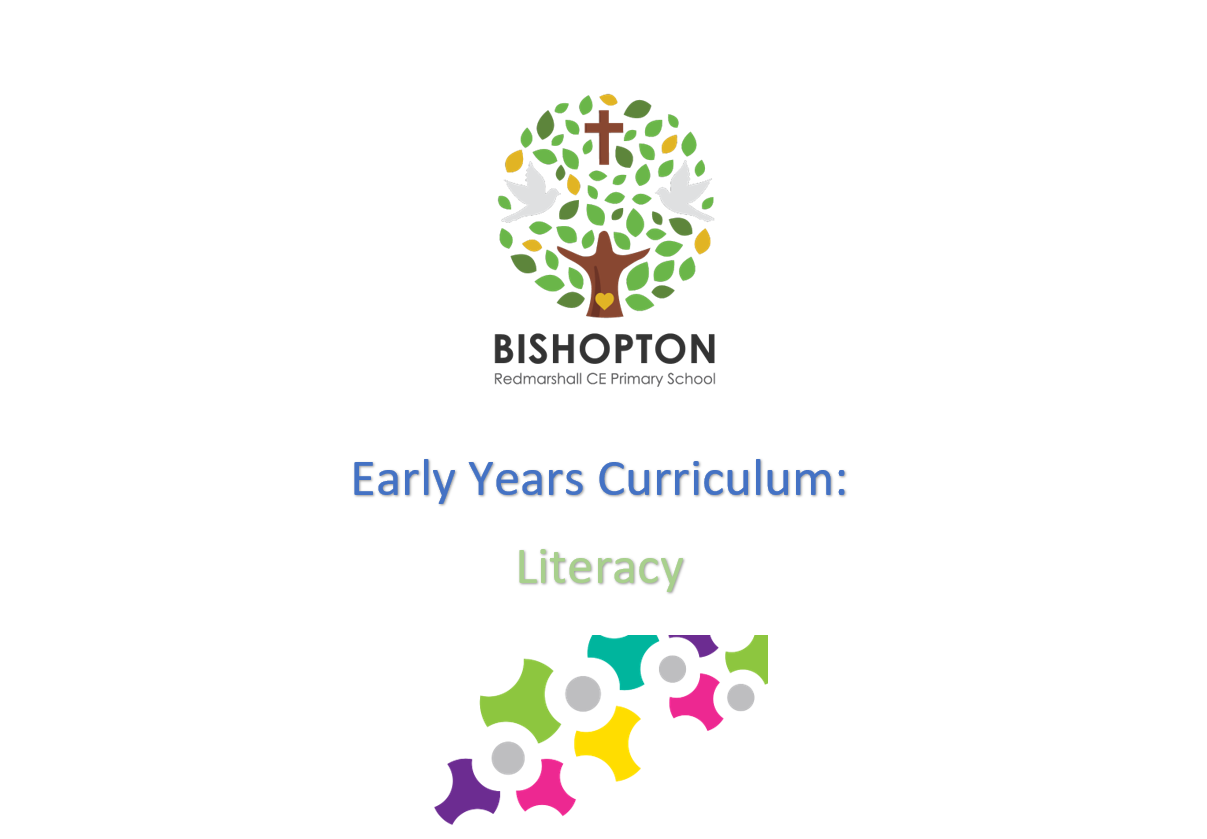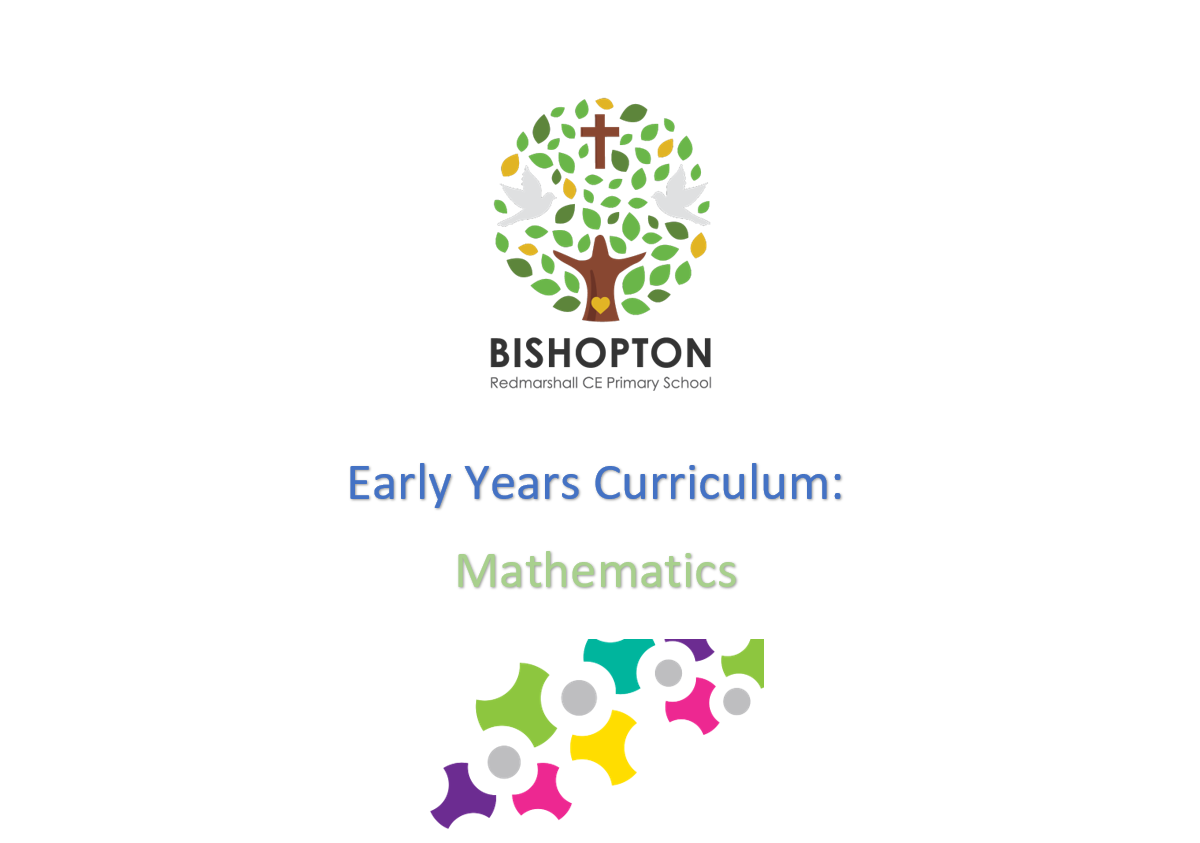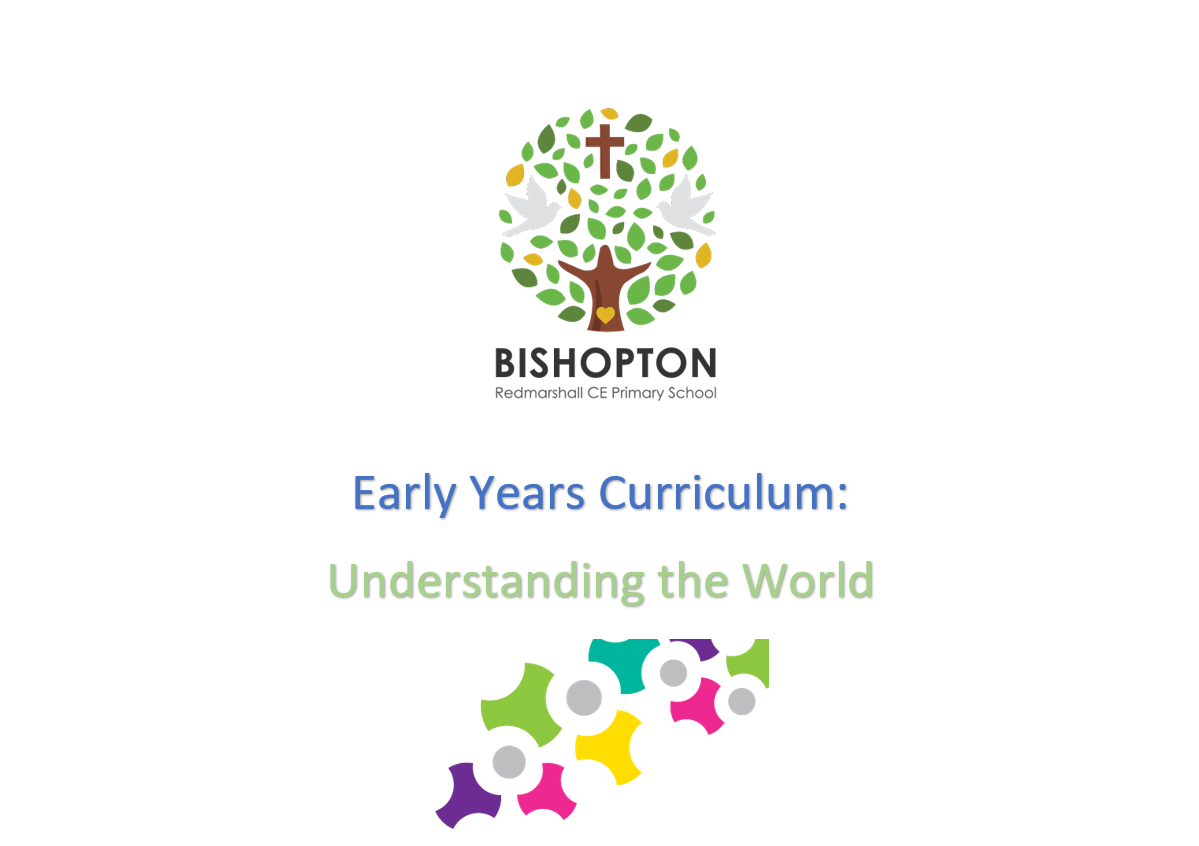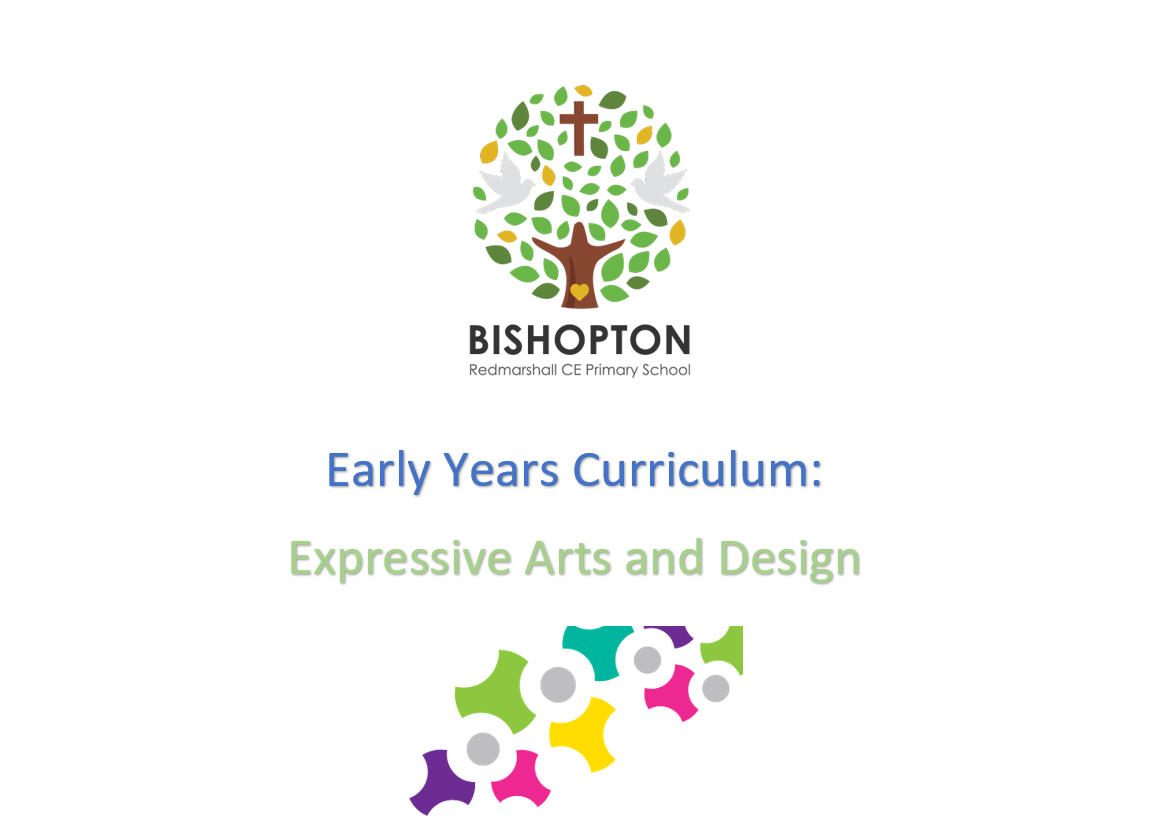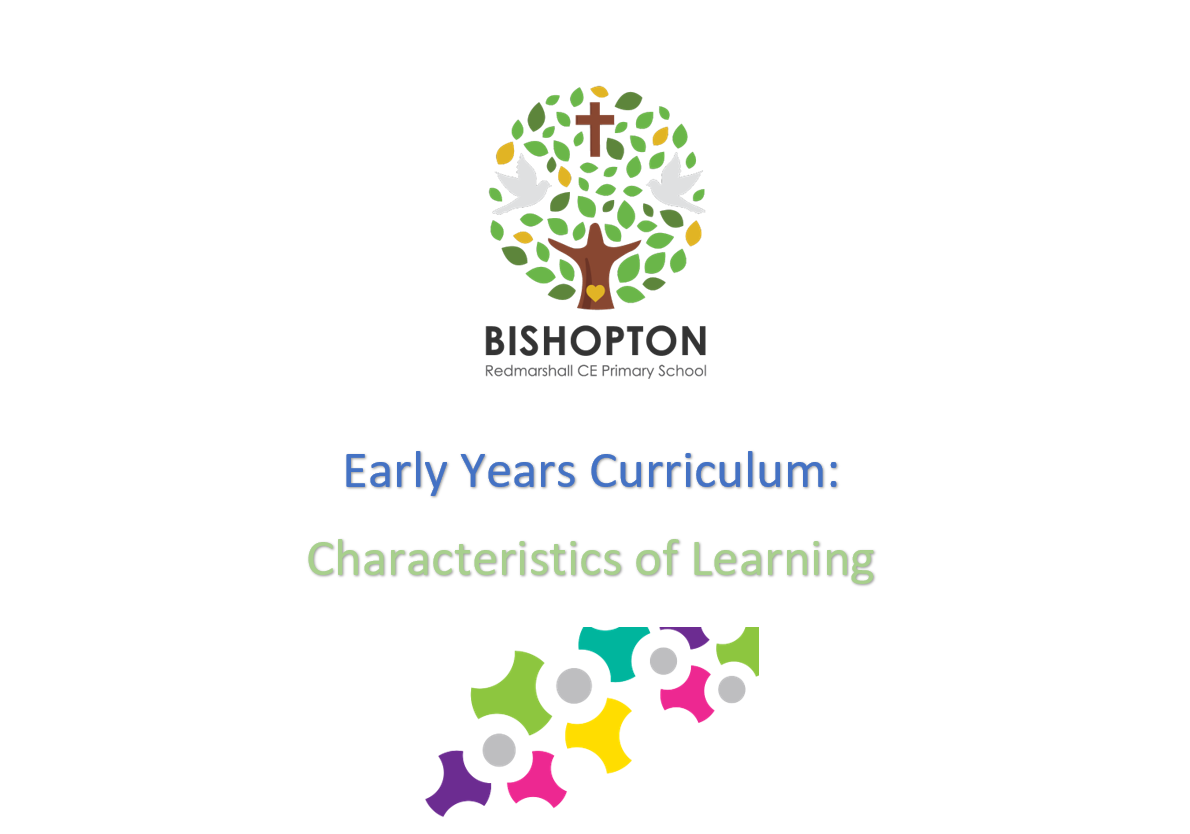Early Years Learning
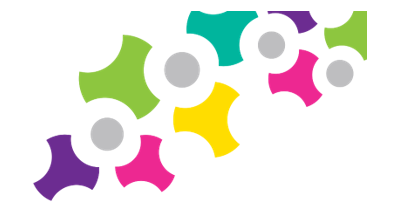
Early Years at Bishopton Redmarshall CE Primary School
Subject Lead: Mr D Williams
Link Academy Councillor: Mrs J Lynch
Aims
- To give each child a happy, positive and fun start to their school life in which they can establish solid foundations on which to expand and foster a deep love of learning;
- To offer each child a wide range of new and exciting experiences and give them the opportunity to consolidate, explore and test them out along with their own, individual experiences;
- To enable each child, through encouragement and high expectations, to develop to the full, socially, physically, intellectually and emotionally.
- To offer a structure for learning that has a range of starting points and unlimited opportunities for development;
- To encourage children to develop independence within a loving, secure and friendly atmosphere;
- To support children in building relationships through the development of social skills such as cooperation and sharing;
- To help each child to recognise their own strengths and achievements through experiencing success and developing the confidence to work towards personal goals.
The Curriculum
Nursery and Reception follow the curriculum as outlined in the Early Years Foundation Stage (EYFS) 2021 document and Development Matters document. This clearly defines what we teach. The following information (policy) details the specifics of our setting.
The EYFS framework includes seven areas of learning and development, all of which are seen as important and interconnected but three areas are seen as particularly important for igniting children’s curiosity and enthusiasm for learning, for building their capacity to learn and form relationships and thrive , they support children’s learning in all other areas, they are known as the prime areas.
The three prime areas are;
- Communication and Language – giving children opportunities to experience a rich language environment; to develop their confidence and skills in expressing themselves; and to speak and listen in a range of situations.
- Physical Development – providing opportunities for young children to be active and interactive; and to develop their co-ordination, control, and movement. Children must also be helped to understand the importance of physical activity6, and to make healthy choices in relation to food.
- Personal, Social and Emotional Development – helping children to develop a positive sense of themselves, and others; to form positive relationships and develop respect for others; to develop social skills and learn how to manage their feelings; to understand appropriate behaviour in groups; and to have confidence in their own abilities.
The specific areas of learning develop essential skills and knowledge for children to participate successfully in society. The four specific areas are;
- Literacy – encouraging children to link sounds and letters and to begin to read and write. Children must be given access to a wide range of reading materials (books, poems, and other written materials) to ignite their interest
- Mathematics – providing children with opportunities to develop and improve their skills in counting, understanding and using numbers, calculating simple addition and subtraction problems; and to describe shapes, spaces, and measure.
- Understanding the World – guiding children to make sense of their physical world and their community through opportunities to explore, observe and find out about people, places, technology and the environment.
- Expressive Arts and Design – enabling children to explore and play with a wide range of media and materials, as well as providing opportunities and encouragement for sharing their thoughts, ideas and feelings through a variety of activities in art, music, movement, dance, role-play, and design and technology.
Characteristics of Effective Learning
The EYFS also includes the characteristics of effective teaching and learning. The Nursery and Reception teacher plans activities within the classroom with these in mind. They highlight the importance of a child’s attitude to learning and their ability to play, explore and think critically about the world around them.
The three characteristics are;
- Playing and Exploring – children investigate and experience things, and ‘have a go.’
- Active Learning – children concentrate and keep on trying if they encounter difficulties,
- and enjoy achievements.
- Creating and Thinking Critically – children have and develop their own ideas, make links
- between ideas, and develop strategies for doing things.
Teaching strategies
We ensure there is a balance of adult led and child initiated activities across the day. Although much of the time is spent with children self-selecting tasks, the interaction between the adult and child is essential as the adult’s response to children builds understanding and therefore guides new learning. The adult’s role is to continually model, demonstrate and question what the child is doing. In some cases the adult will ask a child to come and complete a task or game with them; at other times they will participate in a child’s game, extending it where possible.
By the Summer term in Reception the children will experience more adult directed tasks as they prepare for their transition to year 1.
Play
Learning through play is an important part of our Early Years classrooms. We believe children learn best from activities and experiences that interest and inspire them. Using children’s interests as a starting point, we provide children with stimulating, active play experiences in which they can explore and develop their learning to help them make sense of the world. They have opportunities through their play to think creatively and critically alongside other children as well as on their own. They are able to practise skills, build upon and revisit prior learning and experience at their own level and pace. Play gives our children the opportunity to pursue their own interests and inspire those around them. The children learn to adapt, negotiate, communicate, discuss, investigate and ask questions. We believe it is important that adults take an active role in child initiated play through observing, modelling, facilitating and extending their play. Getting the balance right between child initiated play, which is controlled, and adult led activities is very important to us.
Teaching
We include direct, carefully planned, adult led experiences for children in the form of structured adult led teaching and adult led group activities. These are particularly important in helping children to learn specific skills and knowledge and it is often through children’s play that we see how much of this learning children have understood and taken on.
Each day we follow a timetable with set routines in place. We set aside times each day when the children come together to be taught in more traditional sense, gathered together on the carpet as a class. In these slots we focus on our topic work, maths, literacy, phonics, and stories. These sessions help to develop vital habits of learning: learning as a group, listening to the teacher, taking turns to answer, sitting still etc…
Reading and story play an important part of the day. We want to make sure our children have a love of books and will leave the EYFS with a bank of stories they know well, both traditional and modern classics. We make sure there is always time for whole class story but also that there are many opportunities to enjoy books at other times.
Planning
We believe many children need to be given a starting point to learn new things and find topics are a great way to fire the imagination, topics are usually based on the following areas of learning,
‘Understanding the World’, ‘Literacy’ and ‘Communication and Language’; and range from a topic on Dinosaurs to In the Air or Traditional Tales. The topics are flexible to ensure we also follow the children’s interests, school themes and local or national events e.g. the Olympics.
Staff plan on a weekly basis using daily notes, observations and interactions with children to inform where the learning journey should move. Termly plans are available for parents on the website and are summarised in the weekly class newsletter. Although the class teacher is responsible for writing plans, Support staff will give an input whenever possible.
Classroom organisation
Our Early Years classroom has defined areas with clearly labelled resources to ensure children can access them easily. Each classroom is set up in a way to provide children with experiences and activities in all of the seven areas of learning. Classrooms have a writing area, maths area, creative area, book corner, role-play area, construction/small world area, outdoor area and teaching area. A variety of activities are planned for and set up in the different areas each day. The adults move to whichever area their focus for the session/day is.
The outdoor area is an important part of the classroom. We try to ensure that the range of activities outside reflects the different curriculum areas, for example setting up quiet spaces for a maths game, reading and for construction.
Assessment and observations
Assessment is an essential part of the learning and development of children in the EYFS. It involves practitioners observing children to understand their level of achievement, interests and learning styles, and to then shape learning experiences for each child reflecting those observations. To ensure we have evidence of a child’s progress in the EYFS we use a range of strategies all of which come together in their individual learning journey and special book. These are collections of children’s work, photos and observations which create a detailed picture of the child.
Where appropriate, we include individual next steps for children’s learning. These next steps are discussed by the EYFS team in informal meetings each day, these next steps inform planning for the next day and week ahead. Parents are encouraged to contribute to their children’s learning journey with our WOW slips. WOW slips are where significant events that happen at home can be recorded, they can be taken home to complete or can be completed with the support of a member of staff. Parents are also encouraged to share their child’s achievements in the weekly diary.
On entry to Nursery we carry out baseline assessments for each child. Throughout the Early Years assessment is on-going showing each child’s development across the seven areas of learning. At the end of Reception the class teacher assesses each child against the 17 Early Learning Goals (ELG) and comments on whether their development within each ELG is either ‘emerging’, ‘expected’ or ‘exceeding’. This information is also communicated to parents and carers in the Reception child’s end of year report and can be discussed in the final Parents’ Evening.
Role of staff and key worker
The class teacher and Teaching Assistant are the named key workers for each child in the setting. Her/his role is to help ensure that every child’s care is tailored to meet their individual needs and to help the child become familiar with the setting, offer a settled relationship for the child and build a relationship with their parents. All adults within the Early Years setting actively seek to form positive respectful relationships with the children in their care. The formation of healthy relationships between adults and children is essential in enabling children’s well-being now and their future successes.
Partnership with parents and carers
We believe that parents and carers are a child’s first educator and therefore work very closely to ensure they are involved in what we do with their child at school. We want parents to feel they can speak to us about their child at any time and feel comfortable in our setting. As well as the Nursery and Reception visit days we offer Progress meetings three times a year and have termly play/work with your child days. Positive messages are sent home electronically through the ‘Marvellous Me’ programme.
Health and Safety and Safeguarding
Children learn best when they are healthy, safe and secure, when their individual needs are met, and when they have positive relationships with the adults caring for them.
It is important to note that members of staff do not use their mobile phones or personal handset devices in the classroom and are prohibited from taking photographs with their personal handsets. Members of staff do, however use school cameras to take photographs as evidence to support the regular observation assessment cycle in the EYFS. These photographs are used in children’s learning journeys, in class displays and on the school website. All parents are asked to state if they give permission for their child’s image to be used on the school website through the paperwork in their initial starter packs. We are a healthy school and our children receive free fruit from a Government scheme. Children in Reception are also able to buy a healthy snack available from the school tuck shop, which is open at morning break time.
All staff adhere to the School's Child Protection and Safeguarding Policy.
 Bishopton Redmarshall
Bishopton Redmarshall